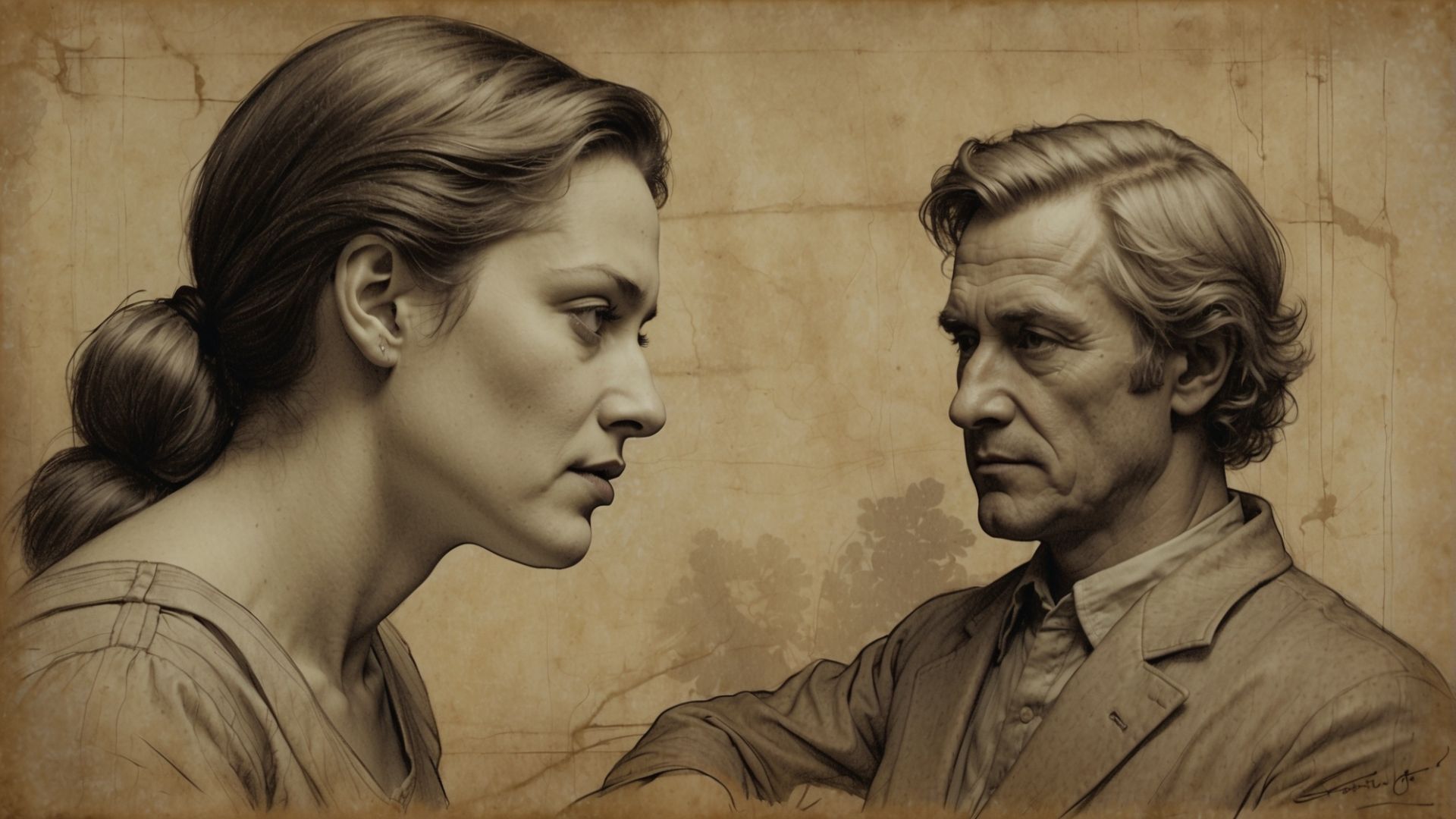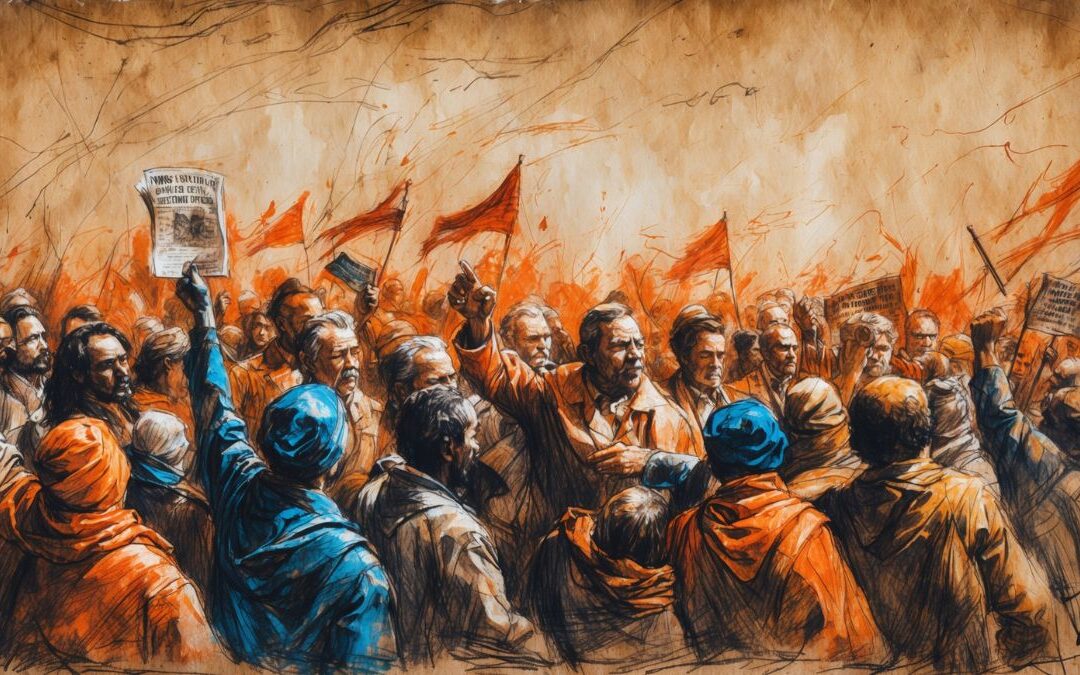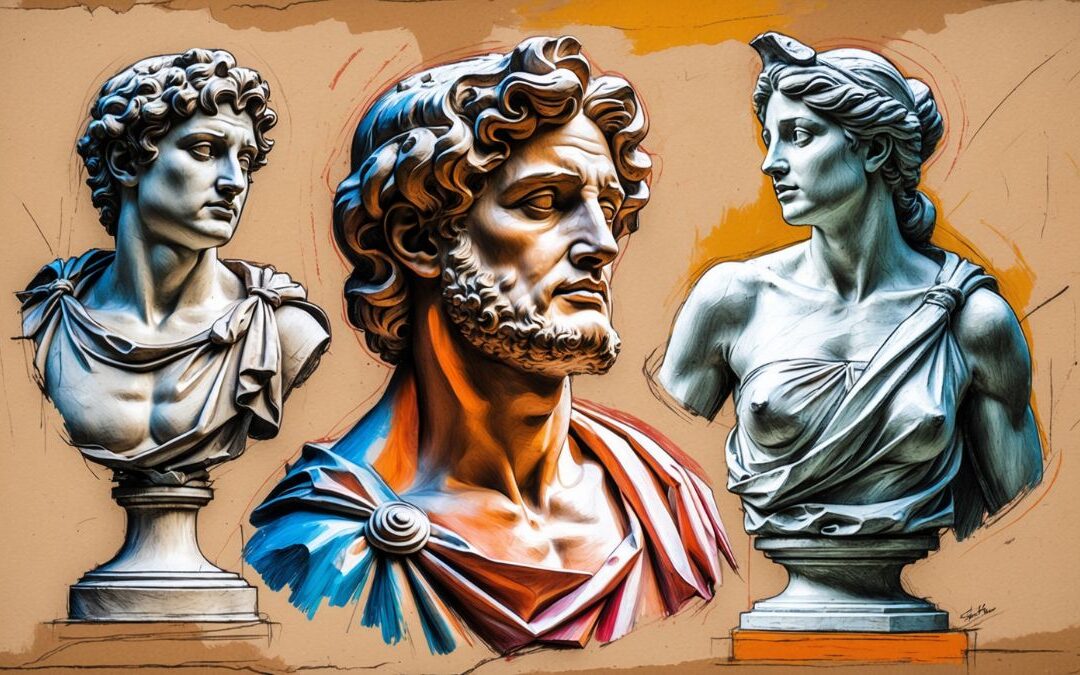Get ready to unlock a hidden world within your favorite classic novels! You know the characters, the plot, maybe even some famous quotes… but there’s a whole other layer of meaning woven into those dusty pages – the fascinating realm of power dynamics.
Think of classic novels like time capsules. Sure, the clothing and language may be outdated, but the underlying human struggles remain startlingly relevant. Power dynamics are everywhere: who has it, who doesn’t, and the messy consequences when it’s abused or challenged.
Master vs. Servant, Rich vs. Poor
Stories often reflect the social structures of their time. Think Jane Eyre: poor, orphaned Jane struggles against her cruel aunt and her brooding employer Mr. Rochester. Or Charles Dickens‘ novels overflowing with downtrodden orphans, ruthless factory owners, and the stark contrast between desperate poverty and obscene wealth.
These weren’t just entertaining plots – they exposed the real-life injustices of their day.
Challenging the Status Quo
Some authors used fictional worlds to comment on the power imbalances they saw. In Jane Austen’s novels, women have little financial or legal power, and their worth is tied entirely to snaring a rich husband. Austen subtly exposes the absurdity of this system… with a dose of delicious social satire.
Other classic stories are even bolder: think of Victor Hugo’s “Les Miserables,” where a man is imprisoned for stealing bread to feed his starving sister. It’s a heart-wrenching look at how ‘justice’ can actually serve the powerful and crush the less fortunate.
It’s Not Just History
Think power struggles only exist in stuffy old novels? Look around! That modern thriller with the cutthroat CEO taking down rivals? That sci-fi epic where a rebel group battles the oppressive empire? They’re echoing the same conflicts we’ve grappled with for centuries.
Understanding power dynamics in classic literature gives you ‘X-ray vision’ for the real world:
- You notice who is and isn’t given a voice in news stories or company meetings.
- You question systems that seem designed to benefit the few at the expense of the many.
- You’re more aware of subtle manipulation techniques used in advertising or politics.
Your Action Step
Ready to dissect power struggles like a pro? Here’s how:
- Re-read with a new lens: Pick a familiar classic and ask: Who holds the power? How do they use it? Is the author critiquing the systems in place?
- Dig deeper: Research the time period the book was written in. What social and political issues were people grappling with then?
- Connect the dots: Can you draw parallels to similar struggles or power imbalances you see in the modern world?
Classic literature isn’t just about fancy language and dusty libraries. It’s a window into the timeless human struggle with power – and that’s a story that never gets old. Ready to re-read those classics with fresh eyes?
Why Should You Care?
- Understanding power unlocks deeper meaning: Analyzing power dynamics in literature reveals hidden themes, social commentary, and richer interpretations of the stories you love.
- Develops critical thinking: You start seeing how power operates in the real world – from politics to social media – making you a more informed citizen.
- Connects past and present: Literature shows that power struggles are timeless, helping you understand current events through a historical lens.
Key Takeaways
- Classic novels often grapple with social inequalities and power imbalances of their time.
- Authors can use fiction to critique real-world injustices and challenge the status quo.
- Themes of power struggles remain relevant today, echoing in modern fiction across genres.
- Studying power dynamics in literature equips you to analyze power structures in your own world with more awareness.
Keywords with Definitions
- Power Dynamics: The relationships of authority and influence between individuals, groups, or systems.
- Status Quo: The existing state of affairs, especially regarding social or political norms.
- Social Commentary: An author’s use of their work to express opinions or critique aspects of society.
- Social Inequality: The unequal distribution of resources and opportunities among different groups in society.
- Manipulation: Influencing someone’s behavior or thoughts in an underhanded or deceitful way.
- Justice System: Institutions and processes upholding laws, resolving disputes, and punishing offenders.
- Class Structure: A society’s system for ranking people based on factors like wealth, income, and occupation.
- Rebellion: An uprising against authority or those in power.
- Empire: A group of states under a single supreme ruler (often with a focus on expansion and domination).
- Critical Thinking: Analyzing information objectively to form judgments, rather than just accepting things at face value.
Frequently Asked Questions
- Isn’t focusing on power struggles a negative way to read? It’s more about awareness. Some stories celebrate triumphs, others expose injustice, both are worth understanding.
- Can this be applied to movies and TV too? Absolutely! Screenplays follow the same patterns of conflict, and visuals can enhance or subtly expose power imbalances.
- Do I need to study history to get this? Helpful, but not essential. Focusing on characters’ actions, who benefits, and who is oppressed tells you a lot, even if you don’t know every historical detail.
Myth Buster
- Myth: Classic literature is boring and irrelevant to modern life.
- Reality: The clothes and technology change, but the core human dilemmas – love, power, justice – are timeless. That’s why these stories endure!
Let’s Talk
- Can you think of a classic novel where the underdog ultimately gains power? How satisfying is that?
- Name a modern media example (movie, book, TV show) with a shocking power imbalance. Does it make you think critically about the world around you?
- Have you ever re-read a favorite book and noticed power dynamics you missed the first time?
Let’s keep the conversation going! Share your thoughts and experiences on power struggles in literature in the comments.











0 Comments